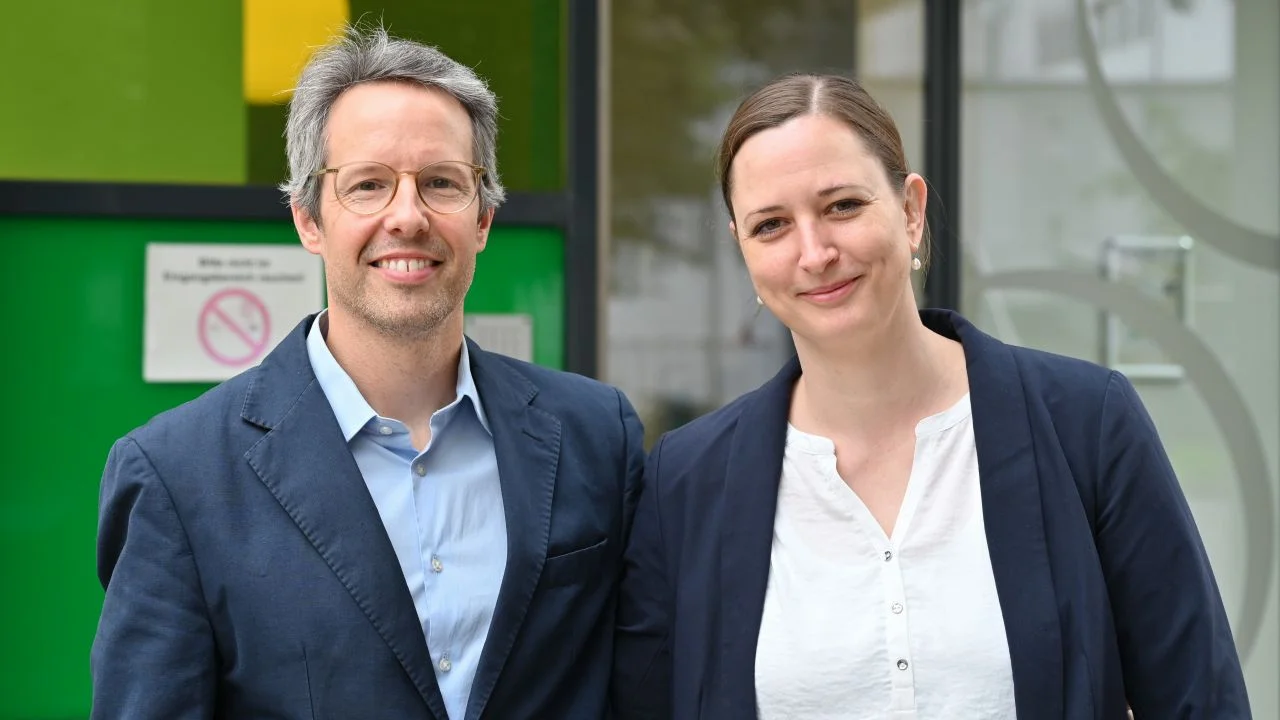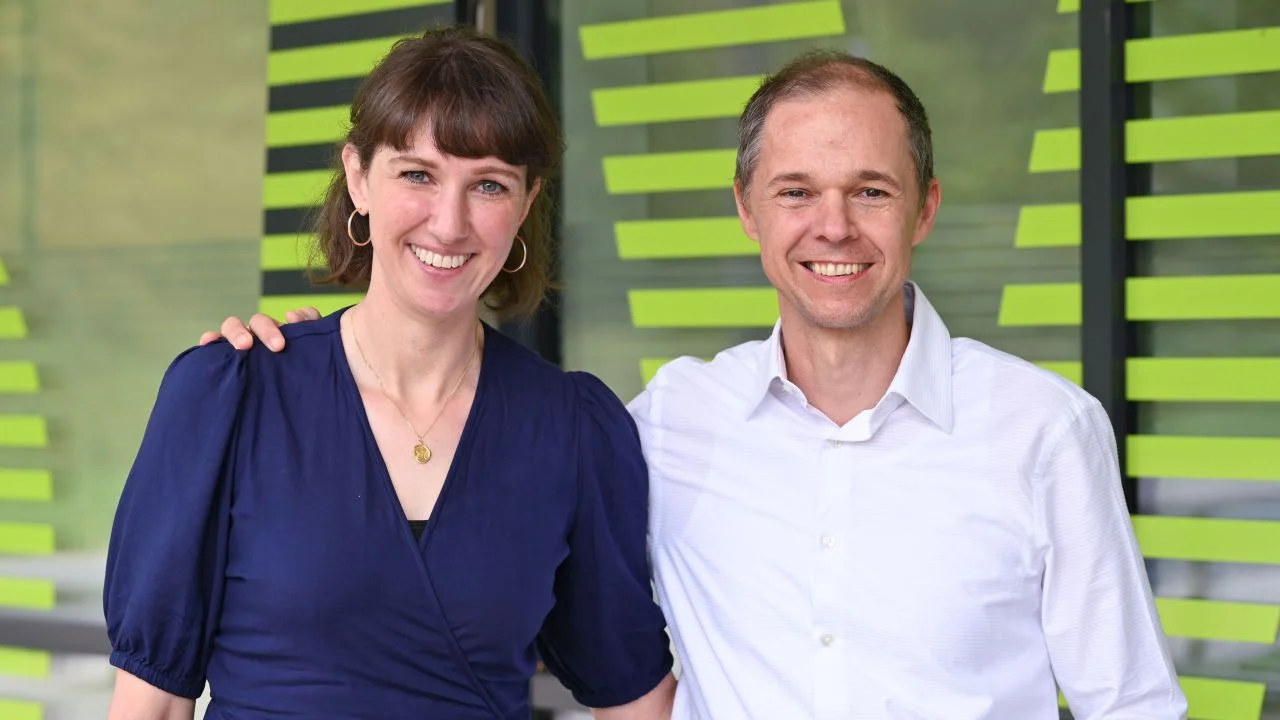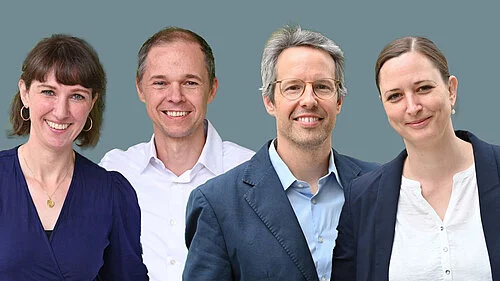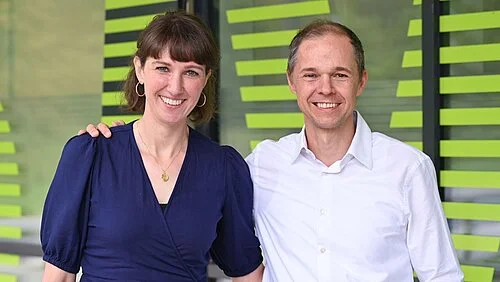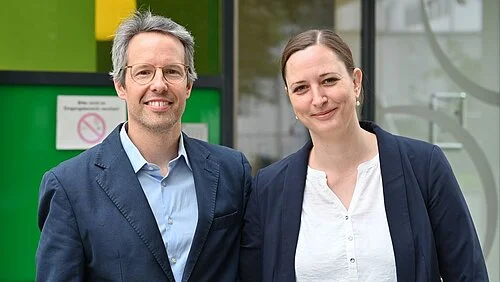Schleswig-Holstein funds four new professorships of excellence in inflammation research
State funding program for medical research at the universities of Kiel and Lübeck enters second round.
The state's innovative funding program for medical research at the universities of Kiel and Lübeck and at UKSH is entering its second round: In the Schleswig-Holstein Excellence Chair Program (SH-Chairs), four outstanding scientists will be funded with immediate effect. Professor Petra Bacher and Professor David Ellinghaus from Kiel as well as Professor Henriette Kirchner and Professor Markus Hoffmann from Lübeck were able to convince the external reviewers with their scientific ideas and concepts as well as their scientific excellence. Science Minister Karin Prien today (September 19) congratulated the selected scientists who are conducting research in inflammation medicine. "In inflammation research, Schleswig-Holstein is among the national and international leaders. For example, with the DFG Cluster of Excellence "Precision Medicine in Chronic Inflammation" (PMI), we are making a significant contribution to researching the causes of chronic inflammatory diseases in organs such as the skin, lungs and intestines. Through our SH Chairs program, we invest in this excellence and offer scientists career prospects in Schleswig-Holstein," she said in Kiel. That is why the state of Schleswig-Holstein is supporting the program with an additional 1.6 million euros, she added.
As an innovative personnel strategy, the SH-Chair program is part of "Precision Health in Schleswig-Holstein" (PHSH) and aims to increasingly promote successful and excellent scientists from Schleswig-Holstein. In 2017, the first eight SH-Chairs were filled, now followed by another four. Each SH Chair will be funded with 1.2 million euros over six years to establish a junior research group.
"I am pleased that through the program we can once again retain outstanding scientists at our two universities. All four are scientifically excellent and extremely experienced in their fields of research. They will enrich and further advance cutting-edge research in Schleswig-Holstein and especially in the Cluster of Excellence PMI," emphasized Professor Simone Fulda, President of Kiel University.
Excellence networks thanks to DFG funding
The close cooperation between the two universities in Kiel and Lübeck is based on the long-standing close cooperation within the Cluster of Excellence PMI and the predecessor cluster and has already proven its worth in the first round of the SH -Chair program starting in 2017. "Very good scientific networks exist between Kiel and Lübeck, from which the new SH Chairs will also benefit. They can also draw on outstanding research infrastructures, for example in genome sequencing, which has also been made possible primarily by the many years of excellence funding at both locations," said Professor Gabriele Gillessen-Kaesbach, President of the University of Lübeck.
"The four new professorships of excellence are not only an outstanding example of the development of excellent scientists. Our patients in particular also benefit from the direct transfer of research results directly to the bedside. Our interdisciplinary inflammation outpatient clinics are a blueprint for how the Cluster of Excellence PMI addresses the challenges of the diseases of the 21st century," explained Professor Jens Scholz, CEO of UKSH.
SH chairs have a say in research structures
Initiated by the DFG Cluster of Excellence "Inflammation at Interfaces", the predecessor of PMI, the Universities of Kiel and Lübeck and the UKSH, with the support of the State of Schleswig-Holstein, had launched the Schleswig-Holstein Excellence Chair Program in 2015. In 2017, the first eight SH Chairs were filled, and now the second round followed. "The Schleswig-Holstein Excellence Chair Program forms an important pillar for the sustainability of our Cluster of Excellence. After all, an elementary goal of the Cluster of Excellence PMI and also, of course, of its predecessor was and is to create structures for cutting-edge research in the state and to design them in such a way that they continue to exist beyond the funding period," emphasizes Professor Stefan Schreiber, speaker of the Cluster of Excellence PMI.
The SH-Chairs not only receive financial support through the appointment, but also have the opportunity to help shape Schleswig-Holstein's university medicine. All SH Chairs are full members of the PHSH governance structure, which is unique in Germany, and can be elected to the steering group. "The representatives of the SH Chairs elected to the PHSH Steering Group directly help determine the clinical research opportunities at UKSH. For example, they decide which research infrastructures are expanded at the sites or which further structures are necessary for science-led clinical trials," explains Professor Philip Rosenstiel, PHSH spokesperson.
The two new Schleswig-Holstein Excellence Chairs at Kiel University: Prof. Dr. David Ellinghaus, Professor of Biomedical Informatics and Genetic Redefinition of Phenotypes, and Prof. Dr. Petra Bacher, Professor of Immunology and Immunogenetics.
These are the four new SH Excellence Chairs:
Prof. Dr. Petra Bacher
Professorship for Immunology und Immunogenetics
Institute of Immunolgy und Institute of Clinical Molecular Biology, CAU and UKSH, Campus Kiel.
"I am interested in antigen-specific CD4+ T cells and especially how they interact with the microbiota, i.e. the microorganisms living on and in the human body. On the one hand, I am fundamentally interested in the healthy interaction: how is immunological tolerance established against the microbiota and how does the immune system manage to control it at the same time? And then we want to understand: What goes differently in patients with chronic inflammation? In chronic intestinal inflammation, for example, we assume that there are inflammatory immune responses against the microbiota. But which microbes are relevant here and which T-cell properties mediate inflammation, that's not known yet."

Prof. Dr. David Ellinghaus
Professorship for Biomedical Informatics and Genetic Redefinition of Phenotypes
Institute of Clinical Molecular Biology, CAU and UKSH, Campus Kiel
"I develop biomedical methods and also my own software applications to investigate the genetic but also other causes of chronic inflammatory diseases. The goal is to use these methods to predict, for example, individual response to treatment or identify patient-specific disease characteristics from a wide range of genetic and other data."

Prof. Dr. Markus Hoffmann
Professorship for Immunology of the Skin
Departement for Dermatology, Allergology and Venereology, UKSH, Lübeck Campus
"I am investigating how restructuring in tissue-derived cells determines whether inflammation becomes chronic or heals, and conversely, how inflammation remodels tissue to alter its response to further inflammation ("inflammatory tissue priming"). It is now known, especially in joint inflammation but also in the skin, for example, that changes occur after inflammation that promote further inflammation."

Prof. Dr. Henriette Kirchner
Professorship for epigenetic regulation of liver metabolism
Institute of Human Genetics, UKSH and UzL
"My research focuses on obesity, type 2 diabetes and fatty liver disease. Here, I explore epigenetic mechanisms - molecular mechanisms that turn genes on and off - in disease development and how to use epigenetics to cure these diseases."

Responsible for this press text:
Patricia Zimnik | Ministry of Education, Science, Research and Culture, Schleswig-Holstein | Brunswiker Str. 16-22, 24105 Kiel | phone +49 431 988-2369 | email pressestelle@bimi.landsh.de
About the Cluster of Excellence PMI
The Cluster of Excellence "Precision Medicine in Chronic Inflammation" (PMI) is being funded from 2019 to 2025 through the German Excellence Strategy (ExStra). It succeeds the "Inflammation at Interfaces” Cluster, which was already funded in two periods of the Excellence Initiative (2007-2018). Around 300 members from eight institutions at four locations are involved: Kiel (Kiel University, University Medical Center Schleswig-Holstein (UKSH), Muthesius University of Fine Arts and Design, Kiel Institute for the World Economy (IfW), Leibniz Institute for Science and Mathematics Education (IPN)), Lübeck (University of Lübeck, University Medical Center Schleswig-Holstein (UKSH)), Plön (Max Planck Institute for Evolutionary Biology) and Borstel (Research Center Borstel - Leibniz Lung Center).
The goal is to translate interdisciplinary research findings on chronic inflammatory diseases of barrier organs to healthcare more intensively, as well as to fulfil previously unsatisfied needs of the patients. Three points are important in the context of successful treatment, and are therefore at the heart of PMI research: the early detection of chronic inflammatory diseases, the prediction of disease progression and complications, and the prediction of individual responses to treatment.
Press office
fbuhse@uv.uni-kiel.de+49 (0)431/880 4682 https://precisionmedicine.de
Cluster of Excellence "Precision Medicine in Chronic Inflammation"
Scientific Office
Head: Dr. habil. Susanne Holstein Postal
Christian-Albrechts-Platz 4, 24118 Kiel, Germany
Contact: Sonja Petermann
+49 (0)431 880-4850, fax: +49 (0)431 880-4894
spetermann@uv.uni-kiel.de
Twitter: PMI @medinflame


